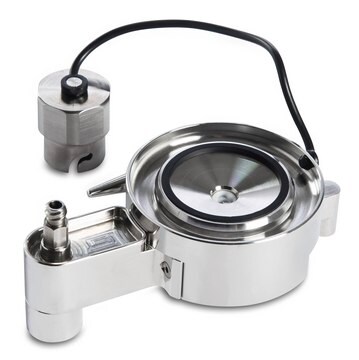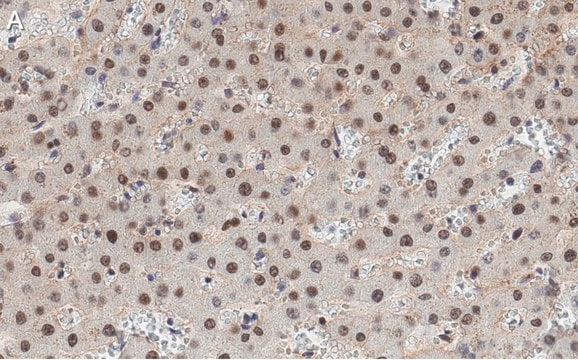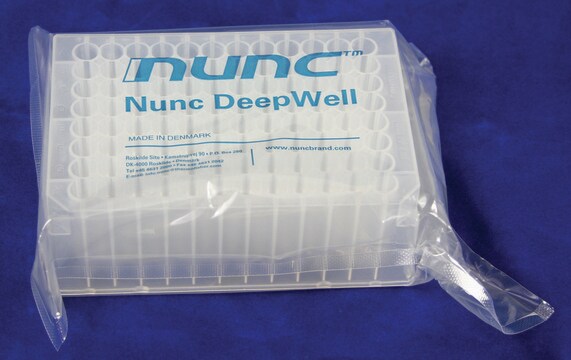H0665
Monoclonal Anti-Hepatocyte Growth Factor antibody produced in mouse
clone 24516, purified immunoglobulin, lyophilized powder
Sinônimo(s):
Anti-HGF
About This Item
Produtos recomendados
fonte biológica
mouse
Nível de qualidade
conjugado
unconjugated
forma do anticorpo
purified immunoglobulin
tipo de produto de anticorpo
primary antibodies
clone
24516, monoclonal
Formulário
lyophilized powder
reatividade de espécies
human
técnica(s)
capture ELISA: 2-8 μg/mL
western blot: 1-2 μg/mL
Isotipo
IgG1
nº de adesão UniProt
temperatura de armazenamento
−20°C
modificação pós-traducional do alvo
unmodified
Informações sobre genes
human ... IL4(3565)
Procurando produtos similares? Visita Guia de comparação de produtos
Descrição geral
Monoclonal Anti-Hepatocyte Growth Factor recognizes human HGF. The antibody shows less that 0.25% cross-reactivity with recombinant human Macrophage Stimulating Protein (MSP).
Imunogênio
Aplicação
forma física
Exoneração de responsabilidade
Não está encontrando o produto certo?
Experimente o nosso Ferramenta de seleção de produtos.
produto relacionado
Código de classe de armazenamento
13 - Non Combustible Solids
Classe de risco de água (WGK)
WGK 1
Ponto de fulgor (°F)
Not applicable
Ponto de fulgor (°C)
Not applicable
Equipamento de proteção individual
Eyeshields, Gloves, type N95 (US)
Escolha uma das versões mais recentes:
Certificados de análise (COA)
Não está vendo a versão correta?
Se precisar de uma versão específica, você pode procurar um certificado específico pelo número do lote ou da remessa.
Já possui este produto?
Encontre a documentação dos produtos que você adquiriu recentemente na biblioteca de documentos.
Nossa equipe de cientistas tem experiência em todas as áreas de pesquisa, incluindo Life Sciences, ciência de materiais, síntese química, cromatografia, química analítica e muitas outras.
Entre em contato com a assistência técnica







